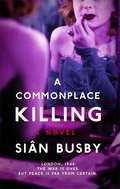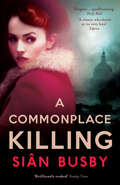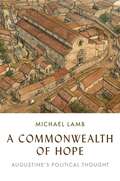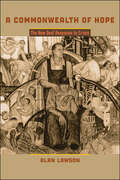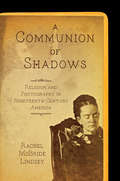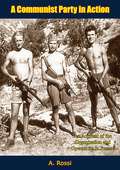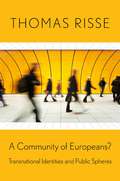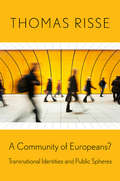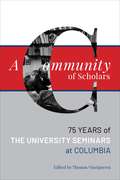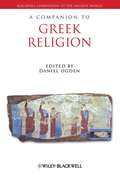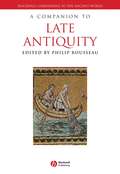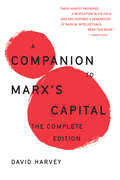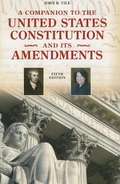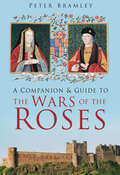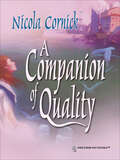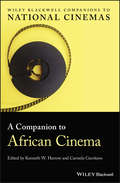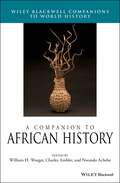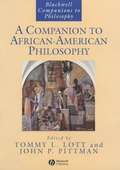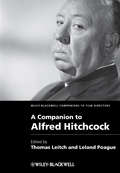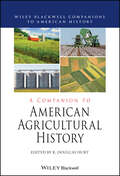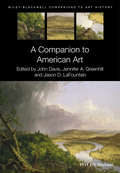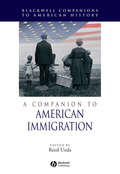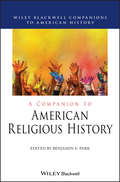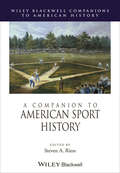- Table View
- List View
A Commonplace Killing
by Sian BusbySet in the bleakness and confusion of post-WWII London, this gripping psychological thriller unravels the double life of a seemingly proper middle-class woman found strangled to death.On a damp July morning in 1946, two schoolboys find a woman's body in an abandoned churchyard in Holloway, north London. She had been strangled and left on a pile of rubble with her clothes and handbag left intact. The police assume that the victim, identified as Lillian Parry, was the random victim of an ex-serviceman looking for a cheap thrill, but the autopsy finds no evidence of sexual assault. The mysterious case sets Divisional Detective Inspector Jim Cooper on a mad search for answers to the many questions surrounding the woman's private life: How did Lil, who lived nearby with her family, come to be in the churchyard--a well-known lovers' haunt? If she hadn't been raped, why was she strangled? How could her husband have failed to notice that she never came home on the night she was murdered? As DDI Cooper unravels the case, the facts point to a postwar world of disillusionment, bitterness, and emotional disturbance--a world where getting back to normal proves far more difficult than the cheerful optimism that the news reels suggest... Brilliantly plotted, fast-paced, and utterly suspenseful, A Commonplace Killing interweaves an account of Lil's last day with the mystery of the investigation into her murder. What results is a sweeping journey through post-war London that will intrigue and shock you through the very last page.
A Commonplace Killing: A Novel
by Sian BusbyOn a damp July morning in 1946, two schoolboys find a woman"s body in a bomb site in north London. In this gripping murder story, Sian Busby gradually peels away the veneer of stoicism and respectability to reveal the dark truths at the heart of postwar austerity Britain.
A Commonwealth of Hope: Augustine's Political Thought
by Michael LambA bold new interpretation of Augustine&’s virtue of hope and its place in political lifeWhen it comes to politics, Augustine of Hippo is renowned as one of history&’s great pessimists, with his sights set firmly on the heavenly city rather than the public square. Many have enlisted him to chasten political hopes, highlighting the realities of evil and encouraging citizens instead to cast their hopes on heaven. A Commonwealth of Hope challenges prevailing interpretations of Augustinian pessimism, offering a new vision of his political thought that can also help today&’s citizens sustain hope in the face of despair.Amid rising inequality, injustice, and political division, many citizens wonder what to hope for in politics and whether it is possible to forge common hopes in a deeply polarized society. Michael Lamb takes up this challenge, offering the first in-depth analysis of Augustine&’s virtue of hope and its profound implications for political life. He draws on a wide range of Augustine&’s writings—including neglected sermons, letters, and treatises—and integrates insights from political theory, religious studies, theology, and philosophy. Lamb shows how diverse citizens, both religious and secular, can unite around common hopes for the commonwealth.Recovering this understudied virtue and situating Augustine within his political, rhetorical, and religious contexts, A Commonwealth of Hope reveals how Augustine&’s virtue of hope can help us resist the politics of presumption and despair and confront the challenges of our time.
A Commonwealth of Hope: The New Deal Response to Crisis (The American Moment)
by Alan LawsonDid the New Deal represent the true American way or was it an aberration that would last only until the old order could reassert itself? This original and thoughtful study tells the story of the New Deal, explains its origins, and assesses its legacy. Alan Lawson explores how the circumstances of the Great Depression and the distinctive leadership of Franklin D. Roosevelt combined to bring about unprecedented economic and policy reform. Challenging conventional wisdom, he argues that the New Deal was not an improvised response to an unexpected crisis, but the realization of a unique opportunity to put into practice Roosevelt’s long-developed progressive thought. Lawson focuses on where the impetus and plans for the New Deal originated, how Roosevelt and those closest to him sought to fashion a cooperative commonwealth, and what happened when the impulse for collective unity was thwarted. He describes the impact of the Great Depression on the prevailing system and traces the fortunes of several major social sectors as the drive to create a cohesive plan for reconstruction unfolded. He continues the story of these main sectors through the last half of the 1930s and traces their legacy down to the present as crucial challenges to the New Deal have arisen. Drawing from a wide variety of scholarly texts, records of the Roosevelt administration, Depression-era newspapers and periodicals, and biographies and reflections of the New Dealers, Lawson offers a comprehensive conceptual base for a crucial aspect of American history.
A Commonwealth of Hope: The New Deal Response to Crisis (The American Moment)
by Alan LawsonWas the New Deal an aberration in American history? This look at its origins and legacy is “truly refreshing . . . the author makes a good case for his ideas” (Journal of Economic History).Did the New Deal represent the true American way or was it an aberration that would last only until the old order could reassert itself? This original and thoughtful study tells the story of the New Deal, explains its origins, and assesses its legacy. Alan Lawson explores how the circumstances of the Great Depression and the distinctive leadership of Franklin D. Roosevelt combined to bring about unprecedented economic and policy reform. Challenging conventional wisdom, he argues that the New Deal was not an improvised response to an unexpected crisis, but the realization of a unique opportunity to put into practice Roosevelt’s long-developed progressive thought.Lawson focuses on where the impetus and plans for the New Deal originated, how Roosevelt and those closest to him sought to fashion a cooperative commonwealth, and what happened when the impulse for collective unity was thwarted. He describes the impact of the Great Depression on the prevailing system and traces the fortunes of several major social sectors as the drive to create a cohesive plan for reconstruction unfolded. He continues the story of these main sectors through the last half of the 1930s and traces their legacy down to the present as crucial challenges to the New Deal have arisen.Drawing from a wide variety of scholarly texts, records of the Roosevelt administration, Depression-era newspapers and periodicals, and biographies and reflections of the New Dealers, Lawson offers a comprehensive conceptual base for a crucial aspect of American history.
A Communion of Shadows: Religion and Photography in Nineteenth-Century America
by Rachel McBride LindseyWhen the revolutionary technology of photography erupted in American culture in 1839, it swiftly became, in the day's parlance, a "mania." This richly illustrated book positions vernacular photography at the center of the study of nineteenth-century American religious life. As an empirical tool, photography captured many of the signal scenes of American life, from the gold rush to the bloody battlefields of the Civil War. But photographs did not simply display neutral records of people, places, and things; rather, commonplace photographs became inscribed with spiritual meaning, disclosing, not merely signifying, a power that lay beyond.Rachel McBride Lindsey demonstrates that what people beheld when they looked at a photograph had as much to do with what lay outside the frame--theological expectations, for example--as with what the camera had recorded. Whether studio portraits tucked into Bibles, postmortem portraits with locks of hair attached, "spirit" photography, stereographs of the Holy Land, or magic lanterns used in biblical instruction, photographs were curated, beheld, displayed, and valued as physical artifacts that functioned both as relics and as icons of religious practice. Lindsey's interpretation of "vernacular" as an analytic introduces a way to consider anew the cultural, social, and material reach of religion.A multimedia collaboration with MAVCOR—Center for the Study of Material & Visual Cultures of Religion—at Yale University.
A Communist Party in Action: An Account of the Organization and Operations in France
by A. Rossi Dr Willmoore KendallRecent events in the United States have shown the workings of little-known elements of the Communist Party, like the secret section whose members are unknown to the rank and file. All this and much more is explained in Rossi’s remarkable disclosure of the entire structure of the Communist Party of one country—in this case France—where we are able to see the Party as it acted under the varying pressures of peace, war, and armistice; how it operates as a legal part of the political scene; how readily it can go underground; how the members are schooled in its principles (an hour-a-day reading of the primary Party books is required); how the overall directives are issued and carried out; how a mass following was to be recruited from the disaffected veterans of the lost war, distraught housewives and families of prisoners, from labor unions and peasants in the Catholic hinterland.This book, based on published and unpublished sources, provides a vast fund of information about the whole range of Communist activities, from the secret instructions that foresaw, in the early days of the German occupation, that the Nazi tolerance of the Party in France would be short-lived to advice on how to meet a comrade with the least chance of being observed. It shows why Party members returning from prison must always be regarded with suspicion, and how and through what means the eventual seizure of the government was to take place. These observations are based on the operations of the French Communist Party, but they apply with only minor changes to the Communist parties of all the Western countries, with their dexterous capacity for maneuver and their unrelenting pursuit, ruthless and with no holds barred, of the ultimate goal of the seizure of power.
A Community of Europeans? Transnational Identities and Public Spheres
by Thomas RisseIn A Community of Europeans?, a thoughtful observer of the ongoing project of European integration evaluates the state of the art about European identity and European public spheres. Thomas Risse argues that integration has had profound and long-term effects on the citizens of EU countries, most of whom now have at least a secondary "European identity" to complement their national identities. Risse also claims that we can see the gradual emergence of transnational European communities of communication. Exploring the outlines of this European identity and of the communicative spaces, Risse sheds light on some pressing questions: What do "Europe" and "the EU" mean in the various public debates? How do European identities and transnational public spheres affect policymaking in the EU? And how do they matter in discussions about enlargement, particularly Turkish accession to the EU? What will be the consequences of the growing contestation and politicization of European affairs for European democracy?This focus on identity allows Risse to address the "democratic deficit" of the EU, the disparity between the level of decision making over increasingly relevant issues for peoples' lives (at the EU) and the level where politics plays itself out in the member states. He argues that the EU's democratic deficit can only be tackled through politicization and that "debating Europe" might prove the only way to defend modern and cosmopolitan Europe against the increasingly forceful voices of Euroskepticism. "
A Community of Europeans?: Transnational Identities and Public Spheres
by Thomas RisseIn A Community of Europeans?, a thoughtful observer of the ongoing project of European integration evaluates the state of the art about European identity and European public spheres. Thomas Risse argues that integration has had profound and long-term effects on the citizens of EU countries, most of whom now have at least a secondary "European identity" to complement their national identities. Risse also claims that we can see the gradual emergence of transnational European communities of communication. Exploring the outlines of this European identity and of the communicative spaces, Risse sheds light on some pressing questions: What do "Europe" and "the EU" mean in the various public debates? How do European identities and transnational public spheres affect policymaking in the EU? And how do they matter in discussions about enlargement, particularly Turkish accession to the EU? What will be the consequences of the growing contestation and politicization of European affairs for European democracy? This focus on identity allows Risse to address the "democratic deficit" of the EU, the disparity between the level of decision making over increasingly relevant issues for peoples' lives (at the EU) and the level where politics plays itself out--in the member states. He argues that the EU's democratic deficit can only be tackled through politicization and that "debating Europe" might prove the only way to defend modern and cosmopolitan Europe against the increasingly forceful voices of Euroskepticism.
A Community of Scholars: Seventy-Five Years of The University Seminars at Columbia (Columbiana)
by Thomas VinciguerraThe Columbia University Seminars, founded in 1945, represent a distinctive experiment in academia. Scholars from different disciplines and institutions, as well as practitioners and other experts, meet once a month through the academic year to study and discuss subjects, sometimes beyond their specialties. Through collegial discussion, participants learn from one another. Today, over ninety seminars are ongoing: some have outlived their founders, while others are just beginning.A Community of Scholars is a seventy-fifth anniversary celebration of the founding of The University Seminars. It brings together essays by seminar chairs and other leading participants that exemplify the diversity and vibrancy of these proceedings. Their topics are wide-ranging—the evolution of the labor movement, urban life, the politics and culture of Brazil, the Enlightenment, the prospects for world peace—but in each, a commitment to intellectual provocation and shared learning is on full display. An informative introduction explains how The Seminars came into being and why they continue to matter. The volume also features biographical sketches of Frank Tannenbaum, the Latin America scholar and criminologist who founded The Seminars, and his wife, the anthropologist Jane Belo, a close friend of Margaret Mead. Belo and Tannenbaum endowed The Seminars and allowed them to flourish. A remarkable testament to an unparalleled intellectual forum, A Community of Scholars allows readers to share in the eclectic spirit of The Seminars.
A Companion To Greek Religion (Blackwell Companions To The Ancient World #27)
by Daniel OgdenThis major addition to Blackwell’s Companions to the Ancient World series covers all aspects of religion in the ancient Greek world from the archaic, through the classical and into the Hellenistic period. Written by a panel of international experts Focuses on religious life as it was experienced by Greek men and women at different times and in different places Features major sections on local religious systems, sacred spaces and ritual, and the divine
A Companion To Late Antiquity
by Philip RousseauAn accessible and authoritative overview capturing the vitality and diversity of scholarship that exists on the transformative time period known as late antiquity. Provides an essential overview of current scholarship on late antiquity - from between the accession of Diocletian in AD 284 and the end of Roman rule in the Mediterranean Comprises 39 essays from some of the world's foremost scholars of the era Presents this once-neglected period as an age of powerful transformation that shaped the modern world Emphasizes the central importance of religion and its connection with economic, social, and political life Winner of the 2009 Single Volume Reference/Humanities & Social Sciences PROSE award granted by the Association of American Publishers
A Companion To Marx's Capital: The Complete Edition
by David HarveyThe radical geographer guides us through the classic text of political economy."My aim is to get you to read a book by Karl Marx called Capital, Volume 1, and to read it on Marx's own terms..." The biggest financial crisis since the Great Depression has generated a surge of interest in Marx's work in the effort to understand the origins of our current predicament. For nearly forty years, David Harvey has written and lectured on Capital, becoming one of the world's most foremost Marx scholars. Based on his recent lectures, this current volume aims to bring this depth of learning to a broader audience, guiding first-time readers through a fascinating and deeply rewarding text. A Companion to Marx's Capital offers fresh, original and sometimes critical interpretations of a book that changed the course of history and, as Harvey intimates, may do so again.
A Companion To The United States Constitution And Its Amendments
by John R. VileA Companion to the United States Constitution and Its Amendments is designed to show students just how revolutionary the Constitution was-and how relevant it remains today. It begins by revisiting the key events leading to the Constitution's ratification, including the writing of the Declaration of Independence and the proceedings of the Constitutional Convention, then goes article by article, amendment by amendment, to describe each section of the document, as well as the important court cases that add to its meaning. The fully updated new edition of A Companion to the United States Constitution and Its Amendments reflects a number of significant developments in the five years since the previous edition, including the appointments of new Supreme Court justices, impactful cases involving First Amendment rights for students, religious displays on government property, gun control in the District of Columbia, presidential powers in the context of the war on terror, corporate fraud liability, gay rights, and the 2010 presidential election.
A Companion and Guide to the Wars of the Roses
by Peter BramleyThe Wars of the Roses (1455-85) saw the end of Plantagenet rule in England and Wales, and the accession of the Tudor dynasty to the throne. It is sometimes seen as the end of the Middle Ages in England, and the start of the modern era, and it paved the way for the reigns of Henry VIII and Elizabeth I. A surprising number of historic sites from this turbulent period survive: battlefields, castles, churches, monasteries. Peter Bramley's beautifully illustrated field guide and companion to the Wars of the Roses gives full details of both the events and the personalities associated with each of these sites, together with the historical background and the reasons for the struggle between the houses of York and Lancaster. Arranged by region, it covers the whole of England and Wales, and provides invaluable information for anyone visiting or planning to visit any of the sites connected with the conflict, as well as anyone interested in the history of this period in general.
A Companion of Quality
by Nicola CornickA young woman disappears. A husband is suspected of murder. Stirringtimes for all the neighborhood.When Captain Lewis Brabant returned from the open sea, all thought hemeant to choose a bride. As eligible females readied to meet thedashing Captain Brabant, one woman of modest means stood away from thecrowd and let her friend have a go at the bachelor. In fact, MissCaroline Whiston had no expectations, since she was a lady'scompanion. But no sooner had the two met than they felt a headyattraction, despite the odds. Would Captain Lewis defy convention andfall in love with this beguiling companion…?
A Companion to African Cinema (Wiley Blackwell Companions to National Cinemas)
by Kenneth W. HarrowAn authoritative guide to African cinema with contributions from a team of experts on the topic A Companion to African Cinema offers an overview of critical approaches to African cinema. With contributions from an international panel of experts, the Companion approaches the topic through the lens of cultural studies, contemporary transformations in the world order, the rise of globalization, film production, distribution, and exhibition. This volume represents a new approach to African cinema criticism that once stressed the sociological and sociopolitical aspects of a film. The text explores a wide range of broad topics including: cinematic economics, video movies, life in cinematic urban Africa, reframing human rights, as well as more targeted topics such as the linguistic domestication of Indian films in the Hausa language and the importance of female African filmmakers and their successes in overcoming limitations caused by gender inequality. The book also highlights a comparative perspective of African videoscapes of Southern Nigeria, Ethiopia, and Côte d’Ivoire and explores the rise of Nairobi-based Female Filmmakers. This important resource: Puts the focus on critical analyses that take into account manifestations of the political changes brought by neocolonialism and the waning of the cold war Explores Examines the urgent questions raised by commercial video about globalization Addresses issues such as funding, the acquisition of adequate production technologies and apparatuses, and the development of adequately trained actors Written for film students and scholars, A Companion to African Cinema offers a look at new critical approaches to African cinema.
A Companion to African History (Wiley Blackwell Companions to World History)
by William H. Worger Charles Ambler Nwando AchebeCovers the history of the entire African continent, from prehistory to the present day A Companion to African History embraces the diverse regions, subject matter, and disciplines of the African continent, while also providing chronological and geographical coverage of basic historical developments. Two dozen essays by leading international scholars explore the challenges facing this relatively new field of historical enquiry and present the dynamic ways in which historians and scholars from other fields such as archaeology, anthropology, political science, and economics are forging new directions in thinking and research. Comprised of six parts, the book begins with thematic approaches to African history—exploring the environment, gender and family, medical practices, and more. Section two covers Africa’s early history and its pre-colonial past—early human adaptation, the emergence of kingdoms, royal power, and warring states. The third section looks at the era of the slave trade and European expansion. Part four examines the process of conquest—the discovery of diamonds and gold, military and social response, and more. Colonialism is discussed in the sixth section, with chapters on the economy transformed due to the development of agriculture and mining industries. The last section studies the continent from post World War II all the way up to modern times. Aims at capturing the enthusiasms of practicing historians, and encouraging similar passion in a new generation of scholars Emphasizes linkages within Africa as well as between the continent and other parts of the world All chapters include significant historiographical content and suggestions for further reading Written by a global team of writers with unique backgrounds and views Features case studies with illustrative examples In a field traditionally marked by narrow specialisms, A Companion to African History is an ideal book for advanced students, researchers, historians, and scholars looking for a broad yet unique overview of African history as a whole.
A Companion to African-american Philosophy
by Tommy L. Lott John P. PittmanThis wide-ranging, multidisciplinary collection of newly commissioned articles brings together distinguished voices in the field of Africana philosophy and African-American social and political thought. Provides a comprehensive critical survey of African-American philosophical thought. Collects wide-ranging, multidisciplinary, newly commissioned articles in one authoritative volume. Serves as a benchmark work of reference for courses in philosophy, social and political thought, cultural studies, and African-American studies.
A Companion to Alfred Hitchcock (Wiley Blackwell Companions To Film Directors Ser. #12)
by Leland Poague Thomas LeitchThe most comprehensive volume ever published on Alfred Hitchcock, covering his career and legacy as well as the broader cultural and intellectual contexts of his work. Contains thirty chapters by the leading Hitchcock scholars Covers his long career, from his earliest contributions to other directors’ silent films to his last uncompleted last film Details the enduring legacy he left to filmmakers and audiences alike
A Companion to American Agricultural History (Wiley Blackwell Companions to American History)
by R. Douglas HurtProvides a solid foundation for understanding American agricultural history and offers new directions for research A Companion to American Agricultural History addresses the key aspects of America’s complex agricultural past from 8,000 BCE to the first decades of the twenty-first century. Bringing together more than thirty original essays by both established and emerging scholars, this innovative volume presents a succinct and accessible overview of American agricultural history while delivering a state-of-the-art assessment of modern scholarship on a diversity of subjects, themes, and issues. The essays provide readers with starting points for their exploration of American agricultural history—whether in general or in regards to a specific topic—and highlights the many ways the agricultural history of America is of integral importance to the wider American experience. Individual essays trace the origin and development of agricultural politics and policies, examine changes in science, technology, and government regulations, offer analytical suggestions for new research areas, discuss matters of ethnicity and gender in American agriculture, and more. This Companion: Introduces readers to a uniquely wide range of topics within the study of American agricultural history Provides a narrative summary and a critical examination of field-defining works Introduces specific topics within American agricultural history such as agrarian reform, agribusiness, and agricultural power and production Discusses the impacts of American agriculture on different groups including Native Americans, African Americans, and European, Asian, and Latinx immigrants Views the agricultural history of America through new interdisciplinary lenses of race, class, and the environment Explores depictions of American agriculture in film, popular music, literature, and art A Companion to American Agricultural History is an essential resource for introductory students and general readers seeking a concise overview of the subject, and for graduate students and scholars wanting to learn about a particular aspect of American agricultural history.
A Companion to American Art (Blackwell Companions to Art History #6)
by Dana ArnoldA Companion to American Art presents 35 newly-commissioned essays by leading scholars that explore the methodology, historiography, and current state of the field of American art history. Features contributions from a balance of established and emerging scholars, art and architectural historians, and other specialists Includes several paired essays to emphasize dialogue and debate between scholars on important contemporary issues in American art history Examines topics such as the methodological stakes in the writing of American art history, changing ideas about what constitutes “Americanness,” and the relationship of art to public culture Offers a fascinating portrait of the evolution and current state of the field of American art history and suggests future directions of scholarship
A Companion to American Immigration: A Companion To American Immigration (Wiley Blackwell Companions To American History Ser. #60)
by Reed Ueda Christopher StrayA Companion to American Immigration is an authoritative collection of original essays by leading scholars on the major topics and themes underlying American immigration history. Focuses on the two most important periods in American Immigration history: the Industrial Revolution (1820-1930) and the Globalizing Era (Cold War to the present) Provides an in-depth treatment of central themes, including economic circumstances, acculturation, social mobility, and assimilation Includes an introductory essay by the volume editor.
A Companion to American Religious History (Wiley Blackwell Companions to American History)
by Benjamin E. ParkA collection of original essays exploring the history of the various American religious traditions and the meaning of their many expressions The Blackwell Companion to American Religious History explores the key events, significant themes, and important movements in various religious traditions throughout the nation’s history from pre-colonization to the present day. Original essays written by leading scholars and new voices in the field discuss how religion in America has transformed over the years, explore its many expressions and meanings, and consider religion’s central role in American life. Emphasizing the integration of religion into broader cultural and historical themes, this wide-ranging volume explores the operation of religion in eras of historical change, the diversity of religious experiences, and religion’s intersections with American cultural, political, social, racial, gender, and intellectual history. Each chronologically-organized chapter focuses on a specific period or event, such as the interactions between Moravian and Indigenous communities, the origins of African-American religious institutions, Mormon settlement in Utah, social reform movements during the twentieth century, the growth of ethnic religious communities, and the rise of the Religious Right. An innovative historical genealogy of American religious traditions, the Companion: Highlights broader historical themes using clear and compelling narrative Helps teachers expose their students to the significance and variety of America’s religious past Explains new and revisionist interpretations of American religious history Surveys current and emerging historiographical trends Traces historical themes to contemporary issues surrounding civil rights and social justice movements, modern capitalism, and debates over religious liberties Making the lessons of American religious history relevant to a broad range of readers, The Blackwell Companion to American Religious History is the perfect book for advanced undergraduate and graduate students in American history courses, and a valuable resource for graduate students and scholars wanting to keep pace with current historiographical trends and recent developments in the field.
A Companion to American Sport History (Wiley Blackwell Companions to American History)
by Steven A. RiessA Companion to American Sport History presents a collection of original essays that represent the first comprehensive analysis of scholarship relating to the growing field of American sport history. Presents the first complete analysis of the scholarship relating to the academic history of American sport Features contributions from many of the finest scholars working in the field of American sport history Includes coverage of the chronology of sports from colonial times to the present day, including major sports such as baseball, football, basketball, boxing, golf, motor racing, tennis, and track and field Addresses the relationship of sports to urbanization, technology, gender, race, social class, and genres such as sports biography Awarded 2015 Best Anthology from the North American Society for Sport History (NASSH)
